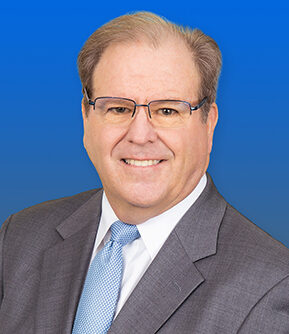ACA Repeal Alert Series: ACA Provisions That Directly Impact Health Care Providers That May Be Repealed, Amended or Replaced
As you are acutely aware, the new administration and Congress are in the process of repealing, amending and/or replacing the Patient Protection and Affordable Care Act (ACA). As of today, there are multiple bills circulating, but there does not appear to be a clear “front runner.” While the major media outlets as well as various health care publications/commentators are providing in-depth coverage of the ACA repeal/replacement, the primary focus has largely been on the most prominent features of the ACA such as the individual coverage mandate, insurance exchanges/marketplaces, Medicaid expansion, etc.
Over the coming weeks, we will continue to closely monitor the repeal/replacement of the ACA generally, but will also be specifically focusing on the less prominent provisions of the ACA whose repeal would nevertheless significantly impact health care providers. We will be circulating periodic updates and analyses as developments arise specifically explaining how such ACA provisions might change.
For your reference, below is a non-exhaustive outline of some of the less prominent ACA provisions that directly impact health care providers and that may shortly be repealed, amended or replaced, which provisions will be the focus of our periodic updates/analyses:
- Health Policy
- Establishment of independent Medicare advisory board (Section 3403)
- Establishment of Center for Medicare and Medicaid Innovation within CMS (Section 3021)
- Payment / Reimbursement Provisions
- Quality related payment initiatives
- Hospital value-based purchasing program (Section 3001)
- Value-based incentive payments to hospitals that meet the performance standards of the program for fiscal year
- Medicare Shared Savings Program (Section 3002)
- Shared Savings Program involving the formation/deployment of ACOs
- Improvements to the Medicare Shared Savings Program (Section 10307)
- Secretary of DHHS has discretion to use alternative payment models for ACOs
- National pilot program on payment bundling (Section 3023)
- Pilot program for integrated care during an episode of care provided to an applicable beneficiary around a hospitalization in order to improve the coordination, quality and efficiency of health care services
- Hospital readmission reduction program (Section 3025)
- Hospitals’ payments for discharges are reduced based on an adjustment factor related to potentially preventable Medicare readmissions for certain conditions
- Payment adjustment for health care-acquired conditions (Section 3008)
- Hospitals in the top 25th percentile of all hospitals for certain hospital acquired conditions will be subject to a reduction in payments
- Hospital value-based purchasing program (Section 3001)
- Other payment provisions
- Changes to the 340B program (Sections 7101, 7102 and 7103)
- Certain Medicare Prospective Payment System excluded hospitals may participate in 340B program
- Reduced Medicare and Medicaid disproportionate share hospital payments (Sections 2551 and 3133)
- Maximum period for submission of Medicare claims reduced to not more than 12 months (Section 6404)
- Hospital wage index improvements (Section 3137)
- Revision of certain market basket updates and incorporation of productivity improvements into market basket updates that do not already incorporate productivity improvements (Section 3401)
- Extension of the work geographic index floor and revisions to the practice expense geographic adjustment under the Medicare physician fee schedule (Section 3102)
- Application of budget neutrality on a national basis in the calculation of the Medicare hospital wage index floor (Section 3141)
- Value-based payment modifier under the physician fee schedule (Section 3007)
- Rural hospital payments increased through additional payments for certain services and other methods (Sections 3104, 3105 and 3122)
- Changes to the 340B program (Sections 7101, 7102 and 7103)
- Quality related payment initiatives
- Fraud and Abuse Law Provision
- Stark Law changes
- Establishment of Medicare Self-Referral Disclosure Protocol (Section 6409)
- Disclosure requirements for in-office ancillary services exception (Section 6003)
- Limitations on physician-owned hospitals (Section 6001)
- Anti-Kickback Statute (AKS) changes (Section 6402)
- Lowered criminal intent standard
- Violation of AKS triggers False Claims Act liability
- Violation of AKS is a federal health care offense
- False Claims Act changes
- Changes in requirements/definitions
- Applies to health insurance exchange payments
- Other fraud and abuse enforcement changes
- Enhanced Medicare and Medicaid Program Integrity Provisions (Section 6402)
- Includes integrated data repository, data sharing and matching, OIG authority to obtain certain information, etc.
- Disclosure/repayment requirements for overpayments (60 day repayment rule)
- Addition of new violations for which civil monetary penalties may be imposed
- Lowered intent standard for health care fraud
- Sentencing enhancements for federal health care offense
- Enhanced Medicare and Medicaid Program Integrity Provisions (Section 6402)
- Stark Law changes
- Quality Initiatives
- Established Community Health Teams to support the Patient-Centered Medical Home model (Section 3502)
- Grants for Community-Based Collaborative Care Networks (Section 1033)
- Quality reporting for Long-Term Care Hospitals, Inpatient Rehabilitation Hospitals and Hospice Programs and PPS-Exempt cancer hospitals (Sections 3004 and 3005)
- ACA Taxes / Fees
- Medical device tax
- Excise “Cadillac” tax on high cost health plans (Section 9001)
- Annual fee on health insurance providers appropriated among providers based on their relative market share
- Annual fee on pharmaceutical manufacturers and importers of branded prescription drugs
- Section 501(r) requirements on Section 501(c)(3) tax-exempt hospitals (Section 9007)
- Education and Training Provisions
- Grants for training in Family Medicine, General Internal Medicine, General Pediatrics and Physician Assistantship (Section 5301)
- Grants to teaching health centers for the purpose of establishing or expanding primary care residency programs (Section 5508)
- Grants to providers who treat a high percentage of medically underserved (or other special) populations in that state (Section 10501)
- Medicaid / Medicaid Enrollment
- Permitting hospitals to make presumptive eligibility determination for all Medicaid eligible populations (Section 2202)
- Medicaid and CHIP enrollment simplification and coordination with exchanges (Section 2201)
- Miscellaneous
- Administrative simplifications(Section 1104)
- Acceleration of the adoption of uniform standards and operating rules for electronic transactions between providers and health plans governed by HIPAA
- Hospitals to publish and update a list of each hospital’s standard charges for items and services provided by the hospital, including for DRGs (Section 1001)
- Administrative simplifications(Section 1104)
If you have any questions, please contact the Stevens & Lee attorney with whom you normally consult.
This News Alert has been prepared for informational purposes only and should not be construed as, and does not constitute, legal advice on any specific matter. For more information, please see the disclaimer.








